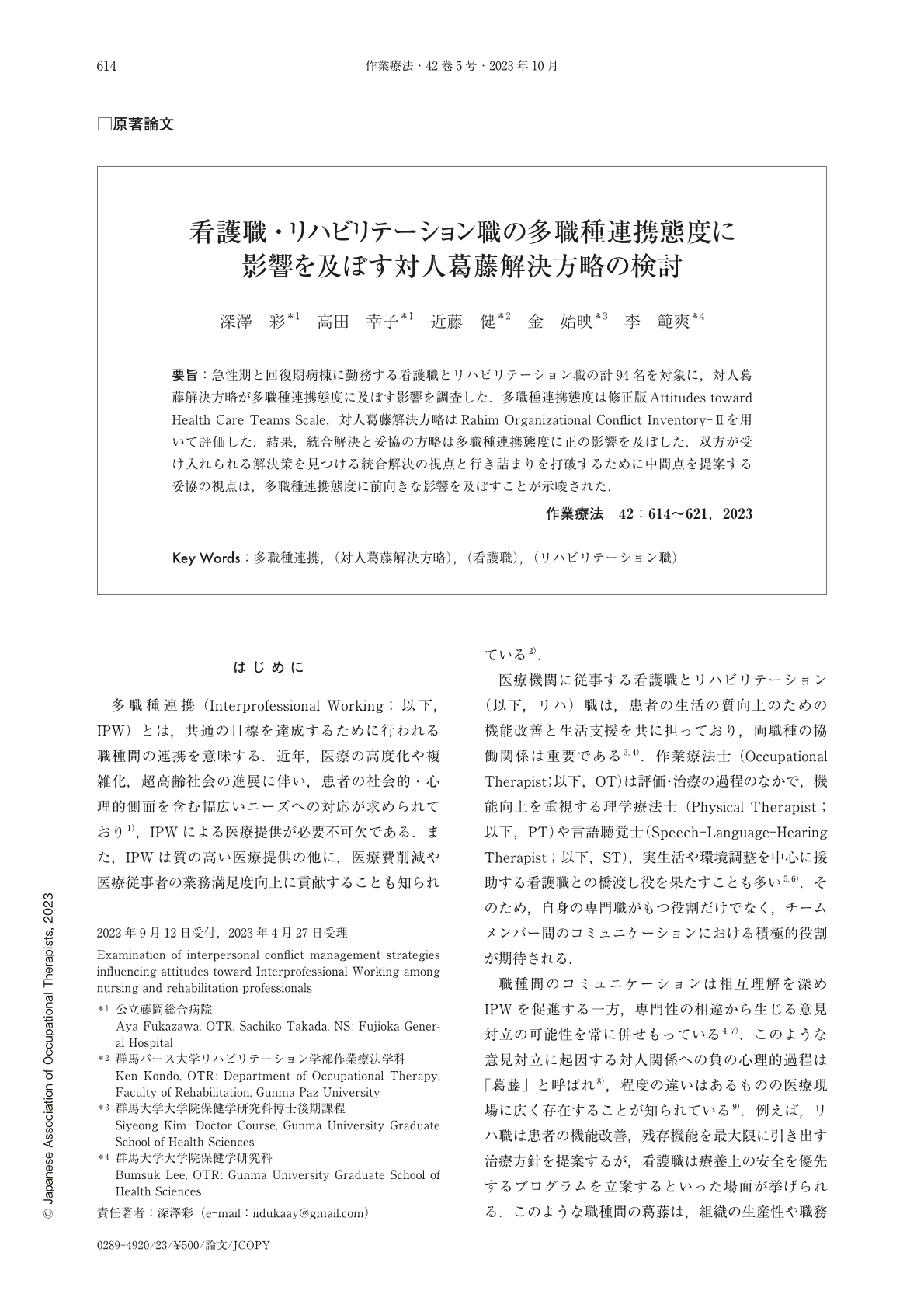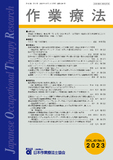Japanese
English
- 販売していません
- Abstract 文献概要
- 1ページ目 Look Inside
- 参考文献 Reference
急性期と回復期病棟に勤務する看護職とリハビリテーション職の計94名を対象に,対人葛藤解決方略が多職種連携態度に及ぼす影響を調査した.多職種連携態度は修正版Attitudes toward Health Care Teams Scale,対人葛藤解決方略はRahim Organizational Conflict Inventory-Ⅱを用いて評価した.結果,統合解決と妥協の方略は多職種連携態度に正の影響を及ぼした.双方が受け入れられる解決策を見つける統合解決の視点と行き詰まりを打破するために中間点を提案する妥協の視点は,多職種連携態度に前向きな影響を及ぼすことが示唆された.
We investigated the influence of interpersonal conflict management strategies on attitudes toward Interprofessional Working among a total of 94 nursing and rehabilitation professionals in acute and convalescent wards. The modified Attitudes toward Health Care Teams Scale was used to assess the attitudes toward Interprofessional Working, and interpersonal conflict management strategies were assessed by the Rahim Organizational Conflict Inventory-Ⅱ. The results indicate that the interpersonal conflict management strategies of Integrating and Compromising were positive factors for attitudes toward Interprofessional Working. These findings imply that the perspective of integrating to find a mutually acceptable solution and the perspective of compromising to provide a midpoint to break a deadlock have a positive influence on the attitudes toward Interprofessional Working.

Copyright © 2023, Japanese Association of Occupational Therapists. All rights reserved.


